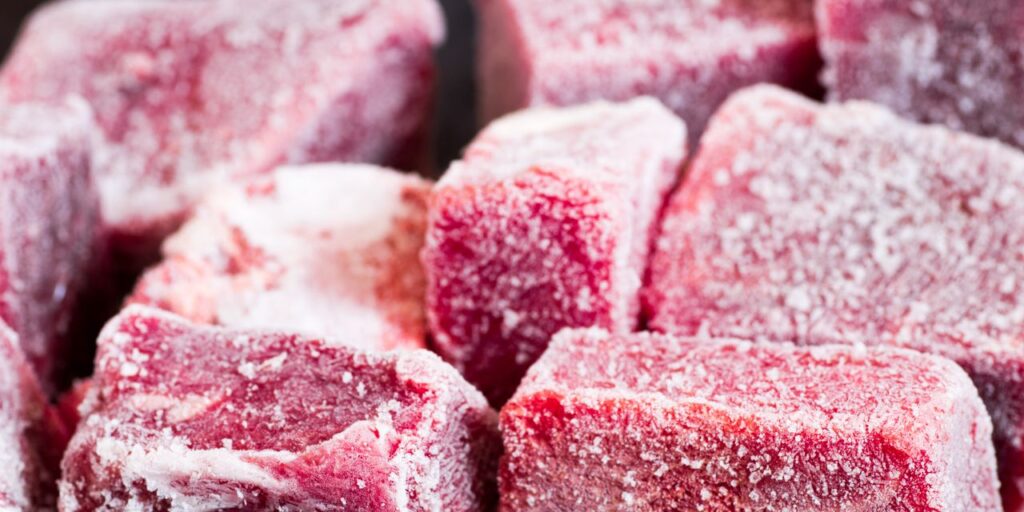For all the information stuffed into product packaging and nutrition labels, it can be surprisingly hard to know how to navigate basic food safety issues that arise in the kitchen. Like: Does freezing meat and poultry “reset” the expiration date (a.k.a. the use-by date)? Say, if you buy raw chicken breast that has a use-by date within five days and then freeze it on the fifth, do you have another five days to use it after it thaws—or has the clock already run out?
Theoretical as this question might seem, the stakes could be high. If you wait too long after thawing to finish off the meat or poultry, for example, the quality could deteriorate significantly. That’s because spoilage bacteria like Pseudomonads, Lactobacillus, and Enterococcus—which love the cool fridge temps—start to grow. Spoilage bacteria generally don’t make you sick, but they will probably yuck up your meat, leading to an “off” smell and taste. Some types of pathogenic, or disease-causing, bacteria, like Listeria, can fare well in the fridge, too, so it’s possible meat left too long could harbor health risks. That said, the primary concern in this situation isn’t foodborne illness, provided the stuff is properly cooked once thawed—rather, it’s more of a “food spoilage issue,” Martin Bucknavage, MS, a senior food safety extension associate at Pennsylvania State University, tells SELF.
Not only is spoiled meat and poultry nasty (you don’t want a decaying cutlet stinking up your fridge, much less percolating in your GI tract), it also amounts to a waste of money and food, so it’s definitely an outcome you want to avoid. Thankfully, with the right knowledge on freezing best practices, you can do just that.
First, a quick refresher on freezing: The super cold temp—freezers should be set to zero degrees Fahrenheit or lower—stalls the growth of bacteria and other organisms. Importantly, it doesn’t kill these bugs. Rather, it prevents them from multiplying (and further hurting the quality or safety of the item). Depending on kind and cut, frozen meat and poultry is best if used within three to 12 months, but it’ll stay safe pretty much indefinitely.
With freezing on the table, you no longer have to chuck a, well, package of chuck if your dinner plans change and you don’t have time to cook it before its expiration date. It’s “just a great way to save that [item] so you don’t have to throw it away,” Bucknavage says.
Helpful as it may be, though, freezing is not a miracle worker: Sorry, but it “doesn’t restart the clock” on your products’ expiration dates, Darin Detwiler, PhD, a food safety expert and associate teaching professor at Northeastern University’s College of Professional Studies, tells SELF. Yes, freezing will halt the progression of bacterial growth in meat and poultry, but once they thaw, that growth will resume. For an item that’s frozen just as it’s about to expire, that growth is in all likelihood already pretty far advanced (basically, it’s “already on the way to becoming spoiled,” Bucknavage says), so the countdown is well underway—and the item won’t last much longer. So that chicken breast we mentioned earlier? If you buy it five days before the use-by date and freeze it on the day it expires, you don’t then have another five days to use it after it thaws, because the resumed bacterial growth will take it past the point of no return within that time frame.


